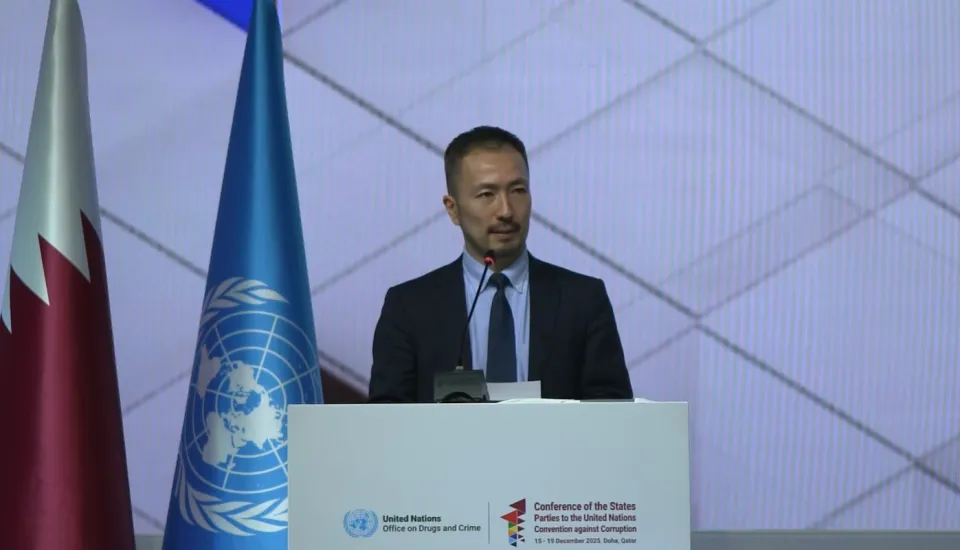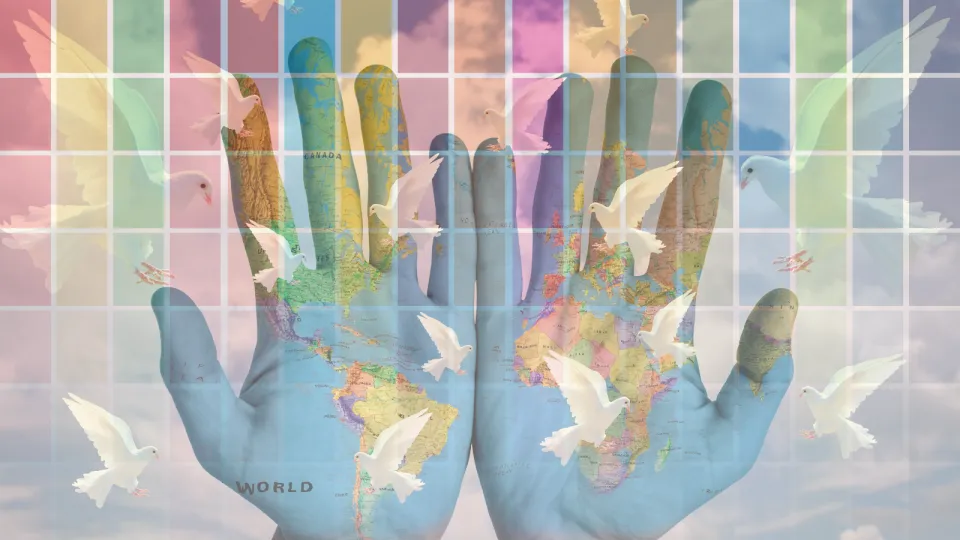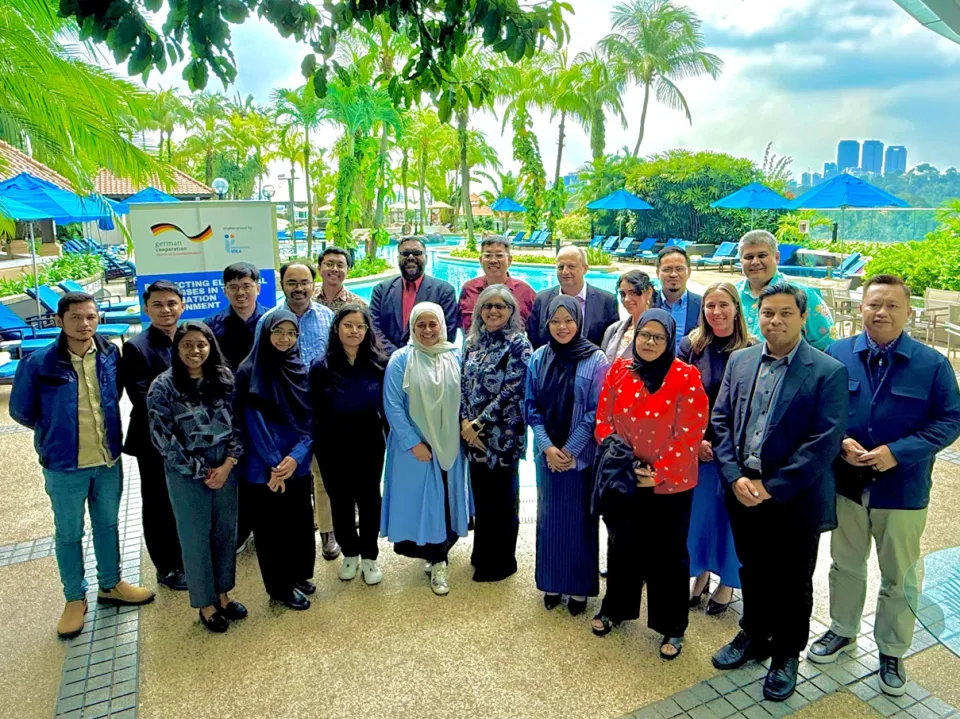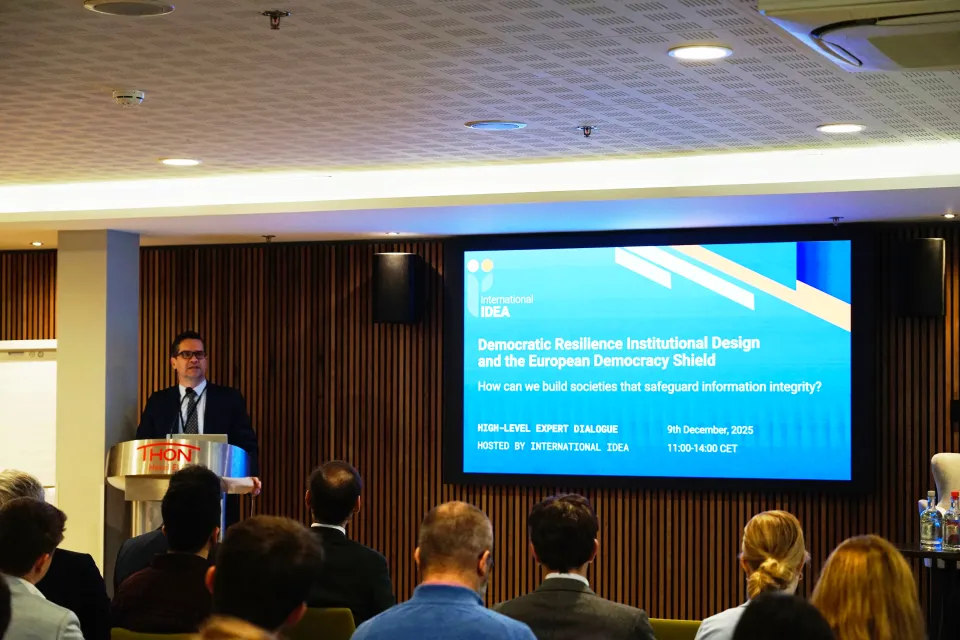How are Women Politicians of Fiji Treated on Social Media?
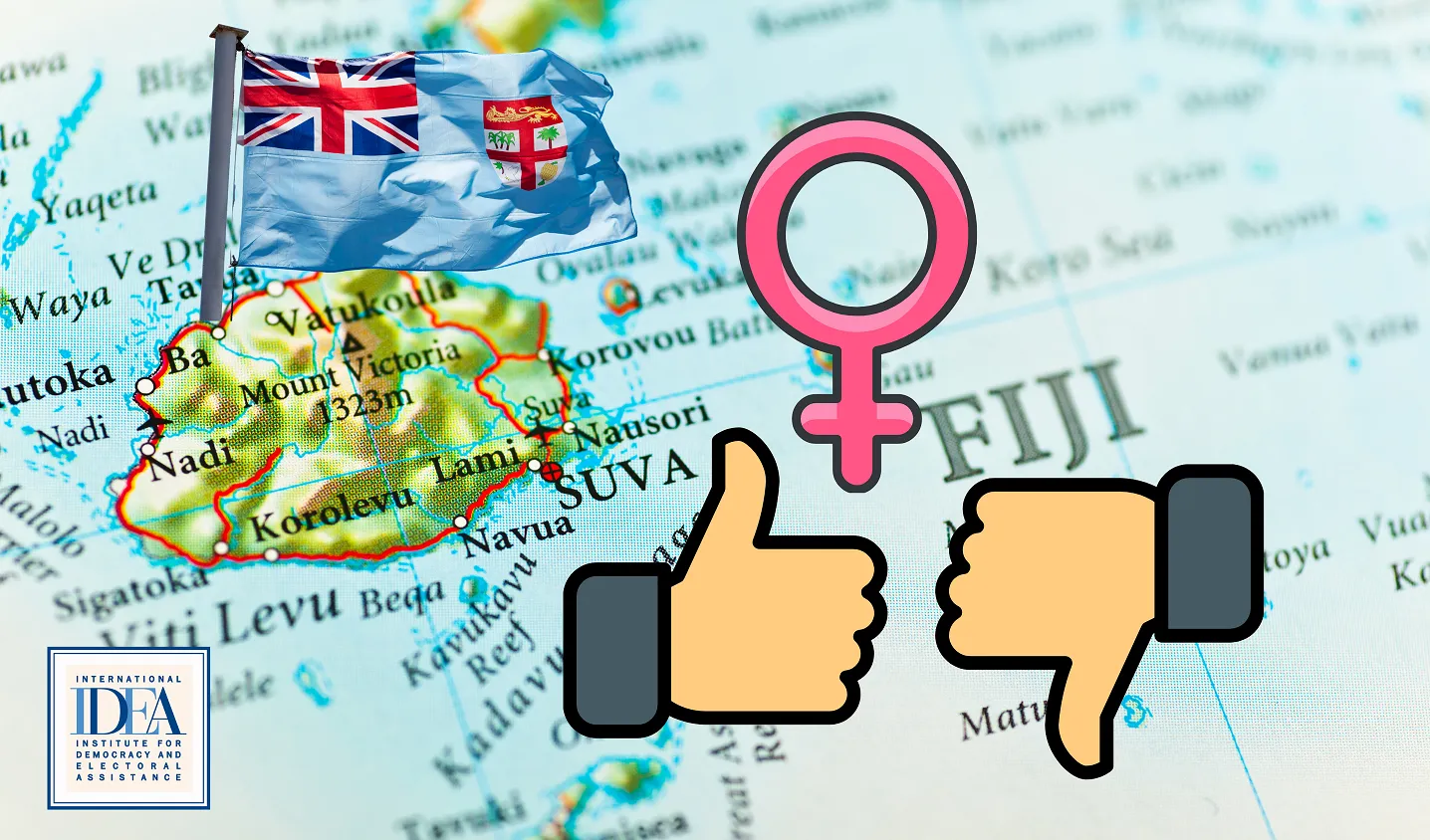
The second webinar of the Democratic Development in Melanesia Webinar Series held on 20 May 2021 presented the main findings of a recent study by International IDEA and its partner, MEMO 98, a Slovak non-profitmedia-monitoring organization, investigating how women politicians of Fiji are treated on Facebook.
According to Adhy Aman, Senior Programme Manager, Asia and the Pacific at International IDEA, this study was conducted after noticing the rise of social media and its overall impact on political discourse in the Melanesian region. The study is expected to increase public's understanding on the type of challenges the current and aspiring women politicians may face on line. Piloting the scope and the metholodology, the study was limited to Fiji only. Applying the methodological lessons learnt, another study is expected to take place in a selected Asia & the Pacific country later this year.
Why was only Facebook analyzed?
According to Hootsuite Data, there are 634,100 Internet users in Fiji as of January 2021, which is approximately 70.5 per cent of the entire population. The number of people that can be reached with adverts on Facebook is 570,000—according to Facebook. By comparison, approximately 140,000 people can be reached with adverts on Instagram and 14,800 on Twitter. The 2019 – 2020 Overview of complaints received by the Online Safety Commission of Fiji stated that Facebook and Messenger were the platforms individuals reported experiencing online abuse the most. Therefore, analysing Facebook was deemed appropriate in the case of Fiji. Facebook posts and comments made in the few months before and after the 2018 elections as well as in the last few months 2020—that is immediately prior to the start of the study—were monitored by the researchers.
Fijian Women targeted on a personal level
While presenting the research’s key findings, Rasto Kuzel of MEMO 98 revealed that the report discovered that women were frequently targeted on a personal level in comparison to male politicians whenever there was a critical or favourable post about the politician. It was highlighted in the report that female politicians were treated in a less serious manner on Facebook as comments to their posts touch upon their appearance and/or personal qualities rather than commenting or analysing their politics when compared to male colleagues. The report identified that most of the problematic content (69.5 per cent) was found in comments by the general public, rather than by other politicians, the media or influencers. This shows how the general public conceives the politicians representing them. When it came to problematic posts, the study revealed that there was no problematic content identified in the posts of women politicians compared to 35 problematic posts on their male counterparts pages. This showed that none of the women politicians monitored are creating problematic posts. Another important finding was that was that the frequency of problematic posts were increasing toward the end of reasearch period (end of 2020).
In the webinar, questions were raised on the qualitative analysis’ findings where the three female featured were all from the opposition party. In his response, Rasto Kuzel clarified that the study looked into all the women politician from all political parties who actually had public profiles or accounts on Facebook at the time of study since having the public account meant that MEMO 98 could use the CrowdTangle tool to access data. It so happens that based on the accessible data, the three female politicians featured were by far the most prominent cases found.
Keeping online space safe for all Fijian
In the webinar, Anne Dunn-Baleilevuka, the Online Safety Commissioner of Fiji was present as a discussant. While explaining the functions of the Online Safety Commission, the Commissioner disclosed that in 2021, there has been a 161 per cent increase in reported online abuse, including online bullying, compared to the same time period last year and the number one platform remained to be Facebook. While answering a question from the participants, the Commissioner revealed that they had received complaints from people who are from public life including politicians and the Commission dealt with their complaints in the same manner as of any other complaint. A complaint is first assessed and sent for a legal opinion, and if it is found to be an offence listed under the Online Safety Act or Crime Decree 2009, then it is most likely referred to appropriate law enforcement. Another question raised by a participant was whether the Commission itself can initiate an investigation in the public interest. The Commissioner explained that for an investigation to commence, a report must be filed with the Commission first since the Commission does not actively monitor the digital space. It, however, develops and provides online safety education for the general public. The Commissioner emphasised that 'championing online safety habits is something all of us can do in our own respective spaces especially now with all the lockdown and containment zones in Fiji'.
What can CSOs do to help women in politics?
While speaking in the webinar on behalf of the Fiji Women’s Rights Movement (FWRM), Losana Tuiraviravi, Acting Team Leader of the Intergenerational Women’s Leadership Programme thanked International IDEA and MEMO 98 on the initiative taken on the report which is really needed in this day and age. The key findings on how women politicians are treated on Facebook explains why women hesitate to come forward as potential candidates in elections. The moderator, Romitesh Kant asked her what role does FWRM play in terms of online violence faced by women politicians and if there are some plans in place for the 2022 General Elections to raise awareness. In response, Losana Tuiraviravi mentioned that women organizations are going to build the capacity of women and equipping them with the necessary tools and resources. Unfortunately, there are external factors beyond their control which the women need to face on their own, be it online or offline. There are plans underway in terms of how FWRM will be engaging with women who are planning to contest in the 2022 elections through the Fiji Women’s Forum. Losana Tuiraviravi acknowledged that this report is timely as these data will help them in strengthening their advocacy plans for the aspiring women.
The webinar had other interesting discussions which can be viewed on the International IDEA Facebook page. The final report will be published in June 2021 and please anticipate more webinars to come on democracy in Melanesia.
Watch the full Webinar below:

